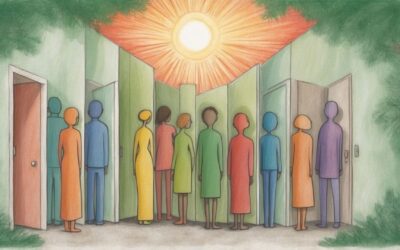The Refugee Crisis and its Impact on Host Countries
Imagine your home is no longer safe, violence or persecution threatens your family. Where do you turn? For millions worldwide, the answer is to flee, leaving everything behind in a desperate search for safety and a new beginning. This is the reality of a refugee.
The scale of the crisis is staggering. Wars, like the ongoing conflict in Syria, climate-related disasters, and oppressive regimes have forced more people from their homes than at any point since World War II. The majority of refugees find shelter in neighboring countries, often nations already struggling with their own challenges.
The Host Country Experience
While providing sanctuary is a humanitarian duty, hosting large numbers of refugees places a burden on any country:
- Strain on Resources: Sudden influxes of people put pressure on housing, healthcare, schools, and basic infrastructure.
- Competition & Resentment: When resources are scarce, refugees may be seen as competing with locals for jobs and services, sometimes fueling social tension.
- Security Concerns: Sadly, there is always the potential for a small number of bad actors to hide amongst those genuinely fleeing danger, which can lead to fear and prejudice.
But There’s Hope
The picture isn’t entirely bleak. Refugees bring more than just needs; they also offer:
- A Boost to the Economy: Studies show refugees can revitalize struggling economies by creating businesses and filling jobs gaps.
- Cultural Enrichment: Refugees bring with them skills, talents, and fresh perspectives, enriching the fabric of their host societies.
- Rebuilding Nations: Many refugees are driven by a deep desire to one day return home and help rebuild their countries.
The Power of Empathy
The heart of this issue lies in seeing refugees not as statistics or burdens, but as individuals with the same hopes and fears as any of us. Imagine being forced to abandon your life, your possessions, perhaps even being separated from loved ones.
Action Time: Making a Difference
Understanding the refugee crisis is the first step toward meaningful action:
- Challenge your own assumptions: Do you hold any unconscious biases about refugees? Seek reliable sources to broaden your perspective.
- Support humanitarian organizations: Donate to reputable NGOs providing aid on the ground to refugees and assisting with resettlement.
- Advocate: Speak up! Share factual information with your circle to combat misinformation and encourage compassionate policies.
True solutions to the refugee crisis require global cooperation – increased financial support for host countries, and safer pathways for resettlement. However, every act of understanding and welcome makes a difference. Let’s choose compassion and work towards a world where everyone has a place to call home.
Why Should You Care?
- Human connection: The refugee crisis is ultimately about people, not politics. It forces us to empathize with those living through unimaginable hardship.
- Global responsibility: Whether or not your nation directly hosts refugees, this crisis highlights the interconnectedness of our world and calls for shared solutions.
- Making informed choices: Understanding the complexities of the issue helps you make informed decisions as a voter and advocate for policies grounded in both compassion and practicality.
Key Takeaways
- Refugees are ordinary people in extraordinary circumstances: They are not ‘other,’ but mothers, fathers, children whose lives have been uprooted by war or persecution.
- Host countries face real challenges: Hosting large refugee populations has social and economic impacts that need to be acknowledged for solutions to be workable.
- There’s potential, not just burden: Refugees can contribute positively to host societies if given the opportunity and support to integrate.
- Global cooperation is crucial: No single nation can solve this crisis alone. It requires shared responsibility and long-term solutions.
Keywords
- Refugee: A person forced to flee their country due to persecution, war, or violence.
- Host Country: A nation that receives and provides sanctuary to large numbers of refugees.
- Humanitarian Duty: The moral obligation to assist those in need, particularly those facing life-threatening circumstances.
- Strain on Resources: The pressure placed on a host country’s infrastructure, housing, and social services due to a sudden influx of refugees.
- Resettlement: The process of relocating refugees to a new country where they can start a new life permanently.
- NGO (Non-governmental organization): An independent, not-for-profit organization, often providing aid and advocacy on issues like the refugee crisis.
- Integration: The process of refugees becoming part of a new society, economically, culturally, and socially.
- Compassion: The ability to understand the suffering of others and a desire to alleviate it.
- Global cooperation: Nations working together to address challenges that transcend borders, like the refugee crisis.
- Persecution: Systematic mistreatment of an individual or group by those in power, often based on religion, race, or political beliefs.
Frequently Asked Questions
- Why don’t refugees stay in the first safe country they reach? Many do. However, those first countries are often overwhelmed, or refugees may seek to reunite with family in another nation.
- Is it safe to host refugees? The vast majority are simply seeking safety. Host nations have screening processes, though effective integration is key to preventing individuals from becoming radicalized.
- What’s the difference between a refugee and an immigrant? Refugees are forced to flee; immigrants choose to relocate for better opportunities. Both deserve dignity, but refugees have additional legal protections.
Myth Buster
- Myth: All refugees are economic burdens. Reality: Many refugees are highly skilled or entrepreneurial. Given the chance, they become taxpayers and contribute to the economy.
Let’s Talk
- Has your perception of refugees changed at all while learning about this topic? In what way?
- Do you believe wealthy nations have a moral obligation to accept more refugees? Why or why not?
- What are some ways individuals can help refugees in their local community?
Let’s keep the conversation flowing! Share your opinions in the comments below.











0 Comments